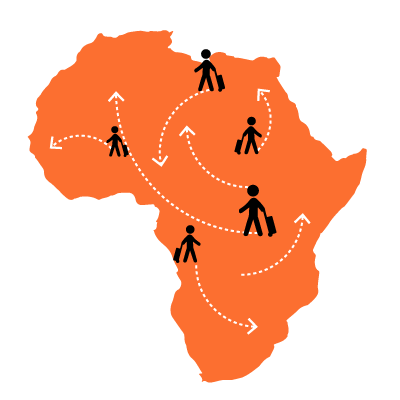If you think China is Africa's most exciting business partner today, then you're wrong.
... And no, it's not the West either ;)
Of course, the explosion of interest in Africa from foreign brands is undeniable.
But Africa’s economic boom is also seeing a new wave of African brands willing and able to reach out to – and fulfil the needs of – other African consumers. Not just in the brand’s home nation, but across the continent.
The most exciting story of cross-border consumerism in Africa today? It’s Africa for Africa.

Kenyan Ministry of Foreign Affairs & International Trade, March 2014In March 2014, the Special Status Agreement between Ethiopia and Kenya passed, allowing Kenyan businesses to open offices in Ethiopia.
Four big forces are driving this trend...
They are: political will, prosperity, youth culture, and local understanding.
1. Where there’s a will there’s a way!
Legislative changes are making commerce between African nations easier.
2. The prosperity movement
African growth rates remain strong.
3. ‘Young, African and Proud’
Africa’s youth are reinventing the continent’s cultures and traditions.
4. Local understanding
African brands understand African consumers better than anyone.
1. Where there's a will, there's a way!
Especially when it's the "will" of the powers that be.
Since the dawn of Africa’s independence, political leaders have spoken about unity amongst African nations. Fast-forward 50+ years: geopolitics and macroeconomics have finally come of age. African unity is back on the agenda.
Today, Africa’s politicians are realising that as the African consumer becomes an object of global interest, the regulatory barriers that stop African brands from reaching those consumers should be dismantled.
The result? A plethora of legislative action and cross-national agreements easing the path for African brands across the continent.

Led by President Paul Kagame of Rwanda, Uhuru Kenyatta of Kenya, African Development Bank President Dr Donald Kaberuka and Nigerian billionaire Aliko Dangote, discussion of a visa-free continent dominated the World Economic Forum on Africa hosted in Abuja, Nigeria in May 2014.
The New Times Rwanda, May 2014
2. The prosperity movement
Africa's pockets deepen, as the West's troubles worsen.
Even as other emerging economies have decelerated in growth, Africa’s growth rates continue to shock and delight economists worldwide.
Furthermore, as recessions and commercial saturation continues to suffocate brands in the West, prospects for African brands seeking expansion into other African markets become more robust.
After all, African countries are now successfully telling (and selling) their own stories on a global scale. The consequence is a new opportunity for African brands: go global by (first) staying local.
United Nations Economic Commission for Africa, April 2014When Nigeria’s GDP was recalculated – or ‘rebased’ – using more recent (2010) production patterns, the estimated size of the economy more than tripled to USD 488 billion, making Nigeria the largest economy in Africa and the 26th largest in the world.
Nigeria’s new GDP raises the question whether there are other African economies with a systematically underestimated GDP, since only nine African countries are reported to have partially or wholly rebased and re-benchmarked their GDP.
3. Say it loud: 'Young, African and Proud!'
Africa's youth are catalyzing a new wave of consumption.
The world’s youngest continent has a lot to say for itself as far as AFRICONSUMPTION goes. Think Afrobeats, Azonto and even Nollywood’s explosion…
Africa’s youth are no longer willing to accept the influences and tastes of their post-colonial parents. Instead, driven by rising prosperity and cultural confidence, they are reinvesting in – and reinventing – African culture and traditions, and making consumption choices to match.
And that makes Africa’s youth a perfect fit when it comes to AFRICONSUMPTION.
4. Local understanding
Localized demands needs localized solutions.
Let’s keep this simple:
No brands understand African consumers better than African brands.
Okay, it might be a little more complex ;)
Yes, Africa is a diverse continent. But commonalities and crossovers between African nations means that, often, African brands are best placed to serve consumers across the region.
Of course, plenty of consumers (often older and more affluent) still look to foreign brands as a sign of social status and quality. But as trade barriers fall, innovation increasingly democratized and the online space connects millions, African brands will have ever-more chances to be, and to prove themselves, as good if not better than foreign alternatives.
FEATURED INNOVATIONS
Let's take a look at the boldest brands targeting African consumers across the continent and spearheading AFRICONSUMPTION...
Jovago
African hotel booking platform opens up its services to Djibouti, Malawi, Zanzibar and South Sudan
After a successful 2013 launch in Nigeria, and an expansion into Kenya and Senegal in March 2014, hotel online booking service, Jovago recently announced further expansion into Djibouti, Malawi, Zanzibar and South Sudan. The startup employs staff on the ground in each location, to both vet and secure partnerships with local and global hotel groups.
Famous Brands
South African fast food group announces new outlets in Morocco and Egypt
In April 2014, South Africa’s Famous Brands, the group behind fast food chains such as Steers and Debonairs Pizza restaurants, announced the opening of new outlets in Morocco, Egypt and locations in the Middle East. The group’s chains have shown phenomenal growth in other markets on the continent, and now plan to expand their North African footprint.
Oju
Mauritian startup launches black emoji for Africans and the diaspora
April 2014 saw the launch of Oju Africa on Google Play Store by Mauritian app developers. The afro emoticon are ap(p;)tly named ‘Oju’, meaning ‘faces’ in Nigeria’s Yoruba language. They are set to rival Apple’s version, rumoured to be in development after an online Twitter campaign erupted, questioning the lack of racial diversity on mobile handsets.
Choppies Enterprises
Botswanan supermarket targets lower middle classes in other African markets
In Q4 2013, Choppies Enterprises, a Botswanan retailer, announced plans to move into Namibia, Zambia and Tanzania, after their expansion into South Africa was declared a success. The supermarket already faces stiff competition from South Africa’s Shoprite, who are also aimed at lower middle class Africans, and has stores in Nigeria, Angola, Tanzania, Mauritius, Madagascar and Uganda.
Jumia
Uganda becomes the 6th African market that 'Nigeria's Amazon' enters
Jumia, an African online retailer launched in Nigeria, announced its Ugandan launch in February 2014. The e-commerce platform is also active in Morocco, Kenya, Egypt and Ivory Coast. Jumia, part of Africa Internet Holding group, sells a variety of consumer goods with a cash-on-delivery option unique to Africa’s booming online shoppers, who may lack banking facilities or who still remain uncertain about secure payments via the web.
Pan African University
Pan-African workshop recruits students from across the continent
In February 2014, the Pan African University Institute for Basic Sciences, Technology and Information (PAUISTI) offered a two-day graduate workshop focused on advancing development in Africa. The institution, which intends to serve all African countries, has satellite centers in each key region: Kenya, Nigeria, Cameroon, South Africa, and (recently opened) Algeria. It has recruited the first set of students from thirteen countries across the continent.
iROKO Partners
Nollywood online distributor offers DVDs to offline South Africans
iROKOtv is a Nollywood streaming service based in Nigeria and also known as ‘Africa’s Netflix’. Since its launch in 2010, the company has built a fanbase of 6 million users and offers over 5000 movies to its online community. Despite mainstream success in Africa and the diaspora, in 2013 the startup began supplying Nollywood DVDs to bricks and mortar retailers in South Africa, in an attempt to cater to those with poor online connectivity.
SABMiller
Brewery taps into Biafran nostalgia to appeal to Nigerian drinkers
In January 2014, SABMiller – the Johannesburg (and London) listed brewers – announced that it would be investing over USD 110 million in the expansion of its Onitsha brewery in Southeastern Nigeria. The investment is the biggest of its kind in the state, and is largely due to the dominance of Hero beer, launched in 2012. The bottle, which displays an image of the sun, is known to be representative of the Biafran flag, and pays homage to the late Chukwuemeka Odumegwu-Ojukwu, the movement’s revered leader.
Ghana International Bank
West African bank moves into lucrative East African market
In an attempt to provide coverage in the Eastern, Southern and Central African corridor, UK-based firm, Ghana International Bank opened its Kenyan office in April 2014. The region’s growth has almost tripled from USD 47 million in 2011 to USD 126 million in 2013, presenting a profitable opportunity for the top-tier bank, now armed with local knowledge.
Foschini Group
South African clothing outlet takes on Ghana's emerging middle classes
After opening two stores in Nigeria, South Africa’s Foschini Group announced plans in Q1 2014 to open four stores in Ghana before the end of the year. As local growth stalls and following a strategy to increase its stores outside of South Africa, the group intend to position themselves as a luxurious brand for emerging middle classes in growing economies on the continent.










